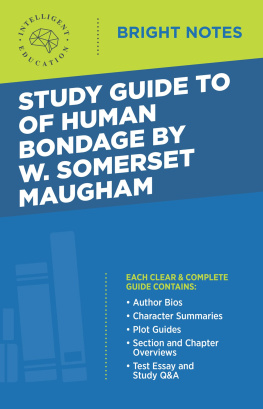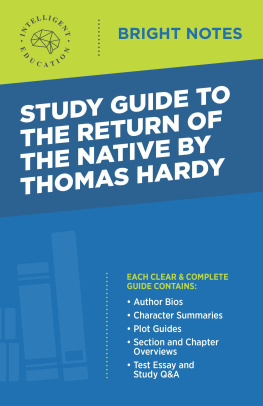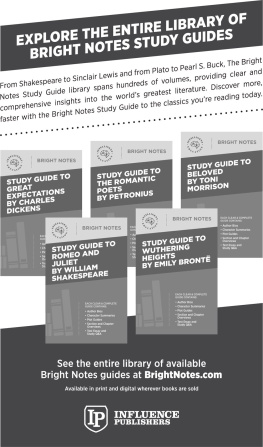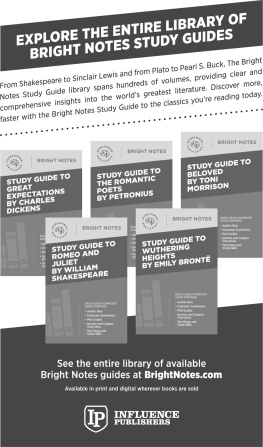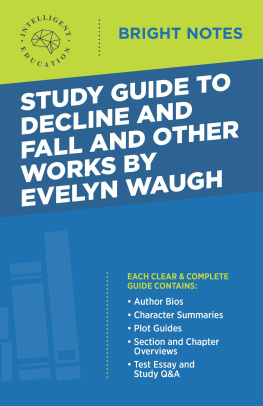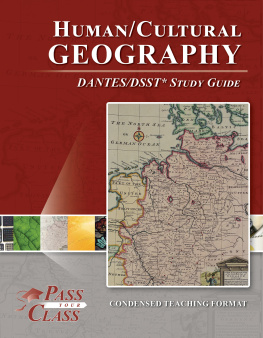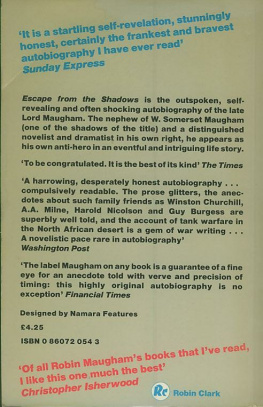

BRIGHT NOTES: Of Human Bondage
www.BrightNotes.com
No part of this publication may be used or reproduced in any manner whatsoever without written permission, except in the case of brief quotations in critical articles and reviews. For permissions, contact Influence Publishers http://www.influencepublishers.com
ISBN: 978-1-645425-30-4 (Paperback)
ISBN: 978-1-645425-31-1 (eBook)
Published in accordance with the U.S. Copyright Office Orphan Works and Mass Digitization report of the register of copyrights, June 2015.
Originally published by Monarch Press.
John F. McKinney; Robert Sobel, 1964
2019 Edition published by Influence Publishers.
Interior design by Lapiz Digital Services. Cover Design by Thinkpen Designs.
Printed in the United States of America.
Library of Congress Cataloging-in-Publication Data forthcoming.
Names: Intelligent Education
Title: BRIGHT NOTES: Of Human Bondage
Subject: STU004000 STUDY AIDS / Book Notes
CONTENTS

INTRODUCTION TO W. SOMERSET MAUGHAM
BIOGRAPHY OF W. SOMERSET MAUGHAM
William Somerset Maugham may be described with some justice as the grand old man of English letters. He was a popular playwright and novelist before many of todays crop of novelists were born, and his popularity has continued relatively undiminished down through the years. Although he has not published a new novel since 1948, he still receives royalties from his works and from motion pictures, as a result of which he is said to be one of the wealthiest men of letters of our own or any other century.
William Somerset Maugham was born on January 25, 1874. On January 25, 1964, Maugham (he never uses his first name, William, though some of his close friends call him Willy), in celebrating his ninetieth birthday, could look back on a writing career of nearly seventy years, although of necessity his productivity has slackened in the last ten years. His first novel, Liza of Lambeth, was published in 1897, and is considered one of his outstanding works to this day. His first play, Schiffbruchig, was written in German when he was eighteen years old. At one time before the First World War he had three successful comedies running at the same time on the London stage. It is estimated that his works have been published in over thirty different languages, and that over eighty million copies have been sold. His three-volume sets of 60 short stories have been purchased by one-half million people since its publication in 1962. He has earned, it is estimated, at least four million dollars from his writing and each year the royalties are still impressive. Over-all, he has published over 150 short stories, thirty plays, many travel books and essays, including works of literary criticism and commentary, and at least four important novels: Liza of Lambeth (1897), The Moon and Sixpence (1919), The Razors Edge (1944), and his most noted and most important work, Of Human Bondage (1915).
Of Human Bondage is basically the story of W. Somerset Maughams early life-his attempt to find himself as a man. It is thus at least partly in the tradition of the Bildungsroman, or novel of development and evolution of a young character, usually a young man, through the storm and stress of youth, adolescence, and early manhood into some reasoned and mature outlook on life. In this, Of Human Bondage participates in the great tradition of European literature of the nineteenth and twentieth centuries. Such novels as Goethes The Sorrows of Young Werther , Dickens David Copperfield , Merediths The Ordeal of Richard Faverel , Samuel Butlers The Way of All Flesh , and that work which is perhaps most widely read in our time, Joyces A Portrait of the Artist as a Young Man -these are stories of the development of a young person through a period of doubt, spiritual torment, and often physical poverty and degradation. Nor do such works always end in a mature and serene outlook, as witness the novels of Goethe and Meredith which have been cited. But of Human Bondage , a partly autobiographical work, has large elements of Maughams own early experiences in it, and ends on a relatively serene note. Mr. Maugham has himself admitted to John Beavan, the English editor and critic, that the novel was an autobiographical book, and that it did reflect the suffering of his early life. However, the book is not entirely objective fact, and the best and most accurate statement one can make about it is that while Philip Carey is not W. Somerset Maugham as a young man, he partakes of many elements of Maughams character and experiences.
Indeed, Maugham spoke many years after completing the work as if he was compelled to write it as a kind of purgation of early and unhappy experiences. He said to John Beavan: The book did for me what I wanted, and when it was issued to the world I found myself free forever of those pains and unhappy recollections. I put into it everything I knew and, having at last finished it, prepared to make a new start.
W. Somerset Maugham was born in Paris, where his father was a well-known English solicitor-a lawyer who did not actually practice in the superior courts of England but who had earned a good amount of money from his profession, so that the Maughams were well-off financially. His father was at the time of the authors birth serving as counselor to the British Embassy in Paris. Maughams mother was noted as a beautiful woman, as may be seen from the picture of her which hangs to this day in Maughams home. His forefathers were important in London society, and his mother also in Paris society, which accounts in part both for Maughams cosmopolitanism and his knowledge of the higher levels of English and French society.
The rather international upbringing together with an education conducted both in English and French to the point that English was really his second language as a youth, had its advantages for him, but at the same time led to difficulties. Maugham was orphaned at an early age; both his mother and father (in reverse order from Philip Careys loss in Of Human Bondage ) became ill and were both dead by the time he was ten. While Mugham had five brothers, the eldest of whom took over his fathers Paris legal work, there was no home for him in Paris, and therefore Maugham, at ten, was taken under the charge of his uncle, the Anglican vicar at All Saints Church in Whitstable. His uncle was stern and puritanical, and he became a model for Uncle William in Of Human Bondage . The author was not a healthy child; he had tuberculosis as a boy and, while he did not have a clubfoot like Philip Carey, he had an obvious physical defect, for he had then and has to this day a stammer which makes conversation occasionally difficult for him.
As did his most famous character Philip Carey, the author studied medicine. He was a perpetual student at St. Thomas Medical School, and he did share the life of the slum dwellers in Londons East End where he led sixty-three babies into the world.
Much has been made of Maughams poverty during his time as a medical student, obviously reflecting the plight of Philip Carey in the novel. But actually, he did have enough to live on, unlike Philip. As the playwright S. N. Behrman wrote: He always had enough to live on just this side of poverty-a vast difference.
Poverty was a threat to W. Somerset Maugham for about a decade after he completed his medical education and decided not to devote his life to medicine but instead to pursue a career in literature. Initially, he earned barely enough to survive: an amount equal to only a few hundred dollars a year. When he attained his first success, it was as a playwright, rather than as a novelist. Today, most of his current readers have never seen even one of his plays, and it is clear that his ultimate reputation will stand or fall on the basis of his achievement as a writer of fiction.
Next page
